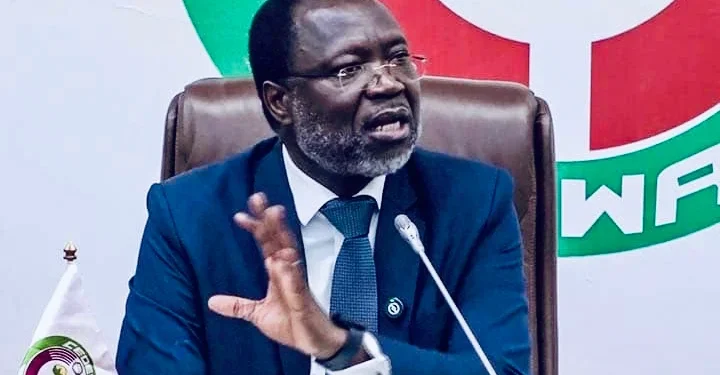The Economic Community of West African States (ECOWAS) has said it would continue to engage with Burkina Faso, Mali and Niger Republic, in spite of their formal withdrawal from the bloc on Wednesday.
The President of ECOWAS Commission, Dr Omar Touray, made this known at a news conference in Abuja on Wednesday.
Touray said that this was in line with the decision of the ECOWAS Authority of Heads of State and Government, which was taken during their Summit on Dec.15, 2024 in Abuja.
According to him, such is also in the spirit of regional solidarity and in the interest of the people
He noted that the bloc was still open to the three countries’ return.
He disclosed that two of the exiting Sahel countries had already officially contacted the commission for further engagements to that effect.
Touray called on all relevant authorities within and outside ECOWAS member states to take note of the unfolding development.
He urged them to treat the national passports and identity cards bearing ECOWAS logo held by the citizens of Burkina Faso, Mali and Niger as still valid, until further notice.
Touray also urged them to treat goods and services coming from the three countries in accordance with the ECOWAS Trade Liberalization Scheme (ETLS) and investment policy.
He said citizens of the three countries would be allowed to continue enjoying the rights of visa free movement, residence and establishment, in accordance with extant ECOWAS protocols, until further notice.
Touray further said the commission would continue to provide full support and cooperation to ECOWAS officials who are citizens of the three countries in the course of their assignments for the Community.
“These arrangements will be in place until the full determination of the modalities of our future engagement with the three countries by the ECOWAS Authority of Heads of State and Government.
“The Commission has set up a structure to facilitate discussions on these modalities with each of the three countries.
“This message is necessary to avoid confusion and disruption in the lives and businesses of our people during this transition period,” he said.
The News Agency of Nigeria (NAN) reports that the three Sahel countries had on Jan. 29, 2024, declared their intention to quit ECOWAS within 12 months in line with the provisions of Article 91 of the bloc’s protocol.
The ECOWAS Authority of Heads of State and Government had in Dec.,2024, approved the three countries’ right to quit but said ECOWAS doors were still open to their return to the subregional bloc.
It would be recalled that the Sahel states had hitherto been hit by violent extremism and terrorism orchestrated by marauding Islamist jihadists emanating mostly from North Africa and the Middle-East.
Notably, this was one of the reasons that the rebelling military rulers gave for seizing power earlier in the their countries.
They accused ECOWAS leaders of being too aligned with Western powers, especially France, at the detriment of their own countries.
The trio said their decision to exit the bloc was also in protest against ECOWAS’ hardline position over the coups in their countries, the imposition of sanctions, as well as the threat of military invasion.
The putchists are now aligned with Russia to fight the armed jihadists, who are currently orchestrating terrorism against their countries.
They have therefore severed all preexisting Western military alliances and presence in their countries.
The military rulers had seized power following a series of coups between 2020 and 2023.
ECOWAS initially responded by imposing sanctions against them, demanding a quick restoration of civilian rule, and threatening to use military force, before backing down.
To demonstrate that they were prepared to match their words with actions, the three countries later went on to sign a tripartite defence treaty and a new confederation – the Alliance of Sahel States (AES), as an alternative to ECOWAS.
They have now made real their “irrevocable” decision to quit ECOWAS, exactly one year after declaring their intention to quit the bloc.
This has become a reality, in spite of ECOWAS leaders’ lifting of some of the sanctions imposed earlier and the deployment of germane diplomatic efforts to enable them to rescind their threat to exit.(NAN)











